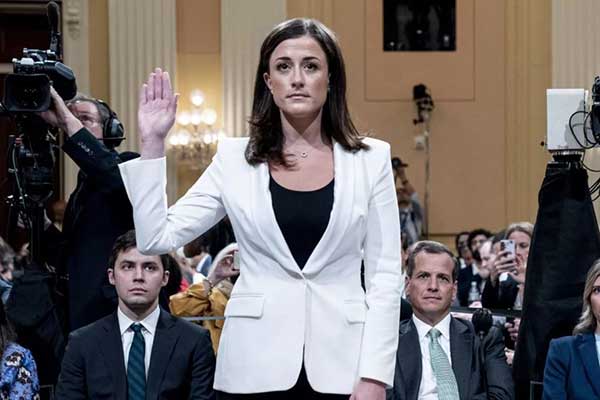By: Kim Strom, Director of UNC-Chapel Hill Office of Ethics and Policy

As we put the finishing touches on this month’s newsletter, the Congressional Committee on the January 6 attack on the U.S. Capitol was hearing testimony from a former highly placed White House aide. Cassidy Hutchinson’s appearance before the Committee is a timely opportunity to explore the complexity of courage and candor.
Courage is often viewed as “action despite fear” and moral courage as “action on behalf of principle despite possible harm.” By either of these definitions, Hutchinson’s testimony was courageous: she and other witnesses had had received coercive, even threatening, messages prior to their committee interviews. As a young woman with decades of professional life ahead of her, the prospect of describing the inner workings of the White House on live television before an investigatory committee must have been daunting as well as damaging to her future career prospects. She went from a low-level, albeit highly-placed, job to the spotlight of a national crisis, enduring public attention, acclaim, and derision for her actions. By appearing before the committee to share what she had seen and heard, she put her safety and her wellbeing at risk to help determine accountability for the deadly Capitol invasion.
Whistleblowers are rarely embraced in our society. Even when their actions lead to a just and positive outcome, people suspect their motives, second guess their methods, or grumble about their faults. This can be seen in the Hutchinson case. Critics note that she appeared before the committee in response to a subpoena, that she did not come forward with important information at the time of the Capitol attack, and that her White House job made her complicit in a number of disturbing decisions prior to January 6.
To be clear, there is no purity test for courage. Being compelled to speak versus doing so voluntarily or being an imperfect person, even a collaborator in the matter being revealed, does not negate the courage required to be a truth-teller. The question of timing is an interesting one in the consideration of courage. There is certainly value in preventing a harm by speaking out in the moment rather than after the fact, but it is also possible that the message could be obscured, or the messenger neutralized if the truth-telling was misdirected or ill-timed. Compared to other leaders subpoenaed by the committee. Ms. Hutchinson deserved credit for delivering her information through official channels in the service of justice rather than a tell-all memoir.
Fifty years ago, Charles Peters wrote “Government needs more people who are psychologically ready to resign or be fired – who, when vital issues are at stake will stand up to their superiors and fight.”1 Truth-telling is important even when the messenger, the mechanism, the timing, and the results are imperfect.
Footnotes
- Peters, C. & Branch, T. (1972). Blowing the whistle. Praeger.
